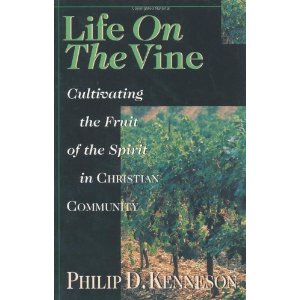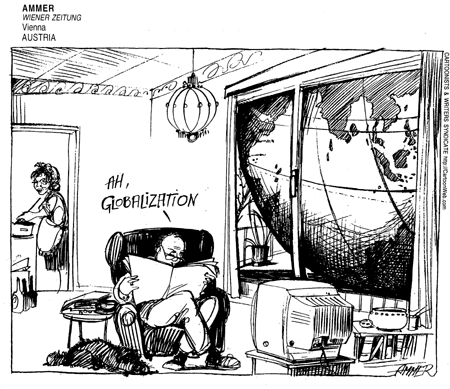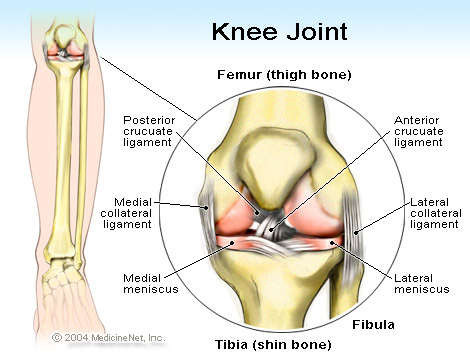Check out this well done movie that explains the story of Jesus…in twitter style.
Articles
How to Increase the Level of Participation in Your Group
Do you ever have those one or two people who just don’t seem to participate in your group discussion time? Does it ever feel like pulling teeth when you try to get them to talk? Okay, maybe it’s not that bad, but in this video I suggest a few different ideas as to how to up the level of participation in your group. I also talk a bit about adult learning methodology.
For more information about groups, check out the website of the church I’m the Groups Pastor at: http://groups.beulah.tv
finally overcoming temptation?
 I don’t know about you, but I face temptation daily. Sometimes I overcome it, and other times I fall into the temptation and sin. There is no way to get rid of temptation completely, but God always promises us a way out of temptation:
I don’t know about you, but I face temptation daily. Sometimes I overcome it, and other times I fall into the temptation and sin. There is no way to get rid of temptation completely, but God always promises us a way out of temptation:
“No temptation has seized you except what is common to man. And God is faithful; he will not let you be tempted beyond what you can bear. But when you are tempted, he will also provide a way out so that you can stand up under it.” (1 Corinthians 10:13)
The awesome thing is, God uses temptation to transform us and develop us:
“Consider it pure joy, my brothers, whenever you face trials of many kinds, because you know that the testing of your faith develops perseverance. Perseverance must finish its work so that you may be mature and complete, not lacking anything.” (James 1:2-4).
However, what practical things can we do to develop self-control in order to overcome temptation when it hits us? This is the question I asked myself while reading Kenneson’s Life on the Vine, and here’s my answer.
[Read more…] about finally overcoming temptation?
growing in patience QUICKLY
Being a father of a toddler and a baby, working full time, and working on my masters degree takes up a lot of my time. As a result, I asked myself this question while reading Life on the Vine, “How do I grow in patience when there are so many demands on my time?”
First things first – we need to alter our own understanding and perspective of time! Instead of seeing time as our taskmaster, we need to view time as a gift from God (Chapter 5, Location 1427).
We also need to change the way we view success. Productivity is not how success should be measured in our life, instead it should be the evidence of the fruit of the Spirit – in this case, patience (Chapter 5, Location 1451). As a result, we need to resist the temptation of measuring our day’s worth by what we have or have not accomplished. Instead of asking ourselves, “What have I accomplished?” We should ask ourselves, “Have I loved and responded to interruptions with sensitivity to what the Holy Spirit may be doing?”
We will also need to change the way we view and label our relationships and interaction with others. Instead of “investing” time in others, we should “devote” time to others, since investment expects a return, whereas devotion is to acknowledge the other’s worth. (Chapter 5, Location 1596). It’s a small change of semantics, but makes a huge difference!
That’s how we grow in patience QUICKLY – and yes…I know that phrase is a paradox.
Book Review: Life on the Vine by Philip D. Kenneson
 Philip D. Kenneson’s Life on the Vine: Cultivating the Fruit of the Spirit stands as a powerful message to the Church, especially the North American church. In addition to preaching the word, Kenneson emphasizes the importance of the church living out the word by bearing the fruit of the Spirit. After all, there needs to be a greater harvest of the Spirit’s fruit in order to continue to advance God’s mission in the world, not because it will make God love us more or because our salvation is at stake (Chapter 1, Location 130). Every fruit of the Spirit finds its origins in the character of God. As a result, Christians become more human and are shaped more into the image of God as the fruit of the Spirit is developed in their lives. As much as cultivating the fruit of the Spirit is something that needs to be done individually in every Christian’s life, the single most important venue for this to take place in is one’s local church where one can practice living out the fruit of the Spirit in relation to God and others.
Philip D. Kenneson’s Life on the Vine: Cultivating the Fruit of the Spirit stands as a powerful message to the Church, especially the North American church. In addition to preaching the word, Kenneson emphasizes the importance of the church living out the word by bearing the fruit of the Spirit. After all, there needs to be a greater harvest of the Spirit’s fruit in order to continue to advance God’s mission in the world, not because it will make God love us more or because our salvation is at stake (Chapter 1, Location 130). Every fruit of the Spirit finds its origins in the character of God. As a result, Christians become more human and are shaped more into the image of God as the fruit of the Spirit is developed in their lives. As much as cultivating the fruit of the Spirit is something that needs to be done individually in every Christian’s life, the single most important venue for this to take place in is one’s local church where one can practice living out the fruit of the Spirit in relation to God and others.
[Read more…] about Book Review: Life on the Vine by Philip D. Kenneson
Globalization Defined
If you are wanting more of an academic definition of globalization, check out the definition given by the Stanford Enyclopedia of Philosophy.
If you are wanting more of a reachable definition, read mine below:
Globalization is about being connected to others, irrespective of one’s geographical location. Globalization is lived out when an individual goes to their supermarket, which is owned by someone from another country, and buys a mango that was imported from Thailand. That individual got to the grocery store by driving in their car, which was assembled in Mexico, while listening to music, playing off their music player designed by a company in Cupertino, California, but which was assembled in China. Since the mango was so delicious, the individual tweets and facebooks, “Thai mangoes are the best!” Afterward, a farmer from Thailand sees that tweet and responds back, “thanks!” This illustration is a glimpse into globalization.
In essence, globalization is the process by which market economies have more of a direct impact on each other, nations develop more of a reliance on one another for resources, individuals from around the world begin speaking the same language, and pollution in one country affects individuals half way around the world. Consequently, the world suddenly seems a lot smaller.
How do you see globalization on a daily basis?
The Perception of Contextualization – A Response to MissionShift
 I am part of a group of bloggers, who received a free copy of MissionShift: Global Mission Issues in the Third Millennium, edited by David Hesselgrave and Ed Stetzer, in order to participate in a discussion on Ed Stetzer’s website.
I am part of a group of bloggers, who received a free copy of MissionShift: Global Mission Issues in the Third Millennium, edited by David Hesselgrave and Ed Stetzer, in order to participate in a discussion on Ed Stetzer’s website.
I am responding to Paul Hiebert’s Essay entitled, “The Gospel in Human Contexts: Changing Perceptions of Contextualization.” Here is the summary of his thesis provided in MissionShift.
Thesis: The purpose of this essay is to offer some discussion of the state of “Contextualization” as a critical aspect of missions, and of the changing perceptions of contextualization among missionaries and missions scholars. Any analysis of the current status of the Christian mission in the world must take social, historical, personal, and other contexts into account, and examine the relationships between the different contexts in which the people we serve live. In this sense this essay addresses the PRESENT of what has traditionally been termed “missions.”
I am not monocultural – never was and never have been. I’m multicultural by birth: I am Canadian and I am also Korean – I’m Korean-Canadian. I agree with Hiebert when he suggests that individuals like me “are aware of cultural differences and have learned to negotiate between two worlds in daily living.” However, I disagree with him when he suggests that individuals like me “often do not stop to consciously examine these contexts, how they shape their thinking, or the deep differences between them.” Perhaps I’m different in that I am always constantly wrestling with my Korean and Canadian cultural differences – perhaps this is because I believe that I am a ligament in the Body of Christ.
[Read more…] about The Perception of Contextualization – A Response to MissionShift
I am a ligament, what are you?
The image of a bridge, or a ligament (Eph 4:16) seems to be a good way of describing my past and the direction I sense God is leading me. Being Korean Canadian, I was born in Canada, but grew up as a Korean – eating Korean food, going to a Korean church, speaking Korean, visiting Korea – basically breathing Korean all throughout my life. In high school, God used me to be a bridge between the English and Korean speaking youth groups – I was involved with both and knew individuals in both groups. I was also involved in a city wide joint worship team, which had the purpose of uniting or bridging all the Korean speaking youth groups. I co-created a Christian club in my high school to unify all the Christians together. I also organized and ran a city-wide youth worship service when I was pastoring in Montreal. While pastoring in Korea, I co-created a network for English speaking youth pastors, where we would put on events together, pray together, plan together, and strategize together.
As the groups pastor at Beulah Alliance Church, I was part of a team that conducted a survey, which revealed the current and proposed areas of integration amongst the differing areas of ministry. I was also leading a team that consists of several pastors, in order to bring greater unity to the group life in the church. There is now one front, instead of divided fronts.
When examining my future, I believe that there are three areas that God has ingrained on my heart: church planting, pastors, and multicultural ministry.
Egypt, Tunisia, and Wikileaks – A Vote of No Confidence

My wife and I just finished re-watching Bourne Ultimatum (the third Bourne movie) and it’s ironic to actually see the fictional movie elements play out in real life. This movie, along with many others, actually echo the realities of our day. If you take a look at CBC.ca, CNN.com, or any other news station, the stories of Tunisia and Egypt will be splattered across all the headlines:
Egyptian government orders Al Jazeera shutdown
Protesters defy curfew in Egypt
At the bottom of these stories is really a vote of no confidence in the government. Just consider Wikileaks and Julian Assange – probably one of the greatest catalysts to this vote of no confidence in the government.
One of the central tenets of postmodernism is a lack of confidence in authority and authority structures. As a result, in our increasingly postmodern world, all these current events aren’t really that surprising.
There’s a lot to say regarding this, but let me just make two points:
[Read more…] about Egypt, Tunisia, and Wikileaks – A Vote of No Confidence
The Ambitious Spiritual Leader – A Paradox?
I’ve been reflecting on the idea of ambition and if its okay for a spiritual leader to be ambitious. After all, in the secular world, ambition and leadership seem to be synonymous with success. However, if God is the one who truly chooses leaders, is ambition really that important for spiritual leadership? Is ambition even okay for the spiritual leader?
1 Timothy 3:1 – Here is a trustworthy saying: Whoever aspires to be an overseer desires a noble task.
Jeremiah 45:5 – Should you then seek great things for yourself? Do not seek them. For I will bring disaster on all people, declares the LORD, but wherever you go I will let you escape with your life.
When contrasting 1 Timothy 3:1 with Jeremiah 45:5, one is presented with an interesting conundrum: It is an honorable ambition to aspire to leadership, but one should not seek great things for oneself. This seems to be a contradiction, but in light of the fact that God sees our hearts and our motives, it is not (Psalm 139:1-4). In spiritual leadership, one’s ambition needs to be for the glory of God, rather than the glory of oneself; for the Kingdom of God, rather than the Kingdom of Self. As a result, ambition can be redefined as humility within the context of spiritual leadership, since all of one’s success is credited to God, rather than to one’s self. For a spiritual leader, ambition is about striving to become the best servant, rather than striving to get the highest number of servants (Mark 10:42-45). Consequently, here is a great question to help discern one’s motives in desiring leadership: Is there any sense of prestige or privilege by having a leadership position in the church? If so, proceed with caution; if not, continue onward.
These reflections are based on my reading of Spiritual Leadership by J. Oswald Sanders.



